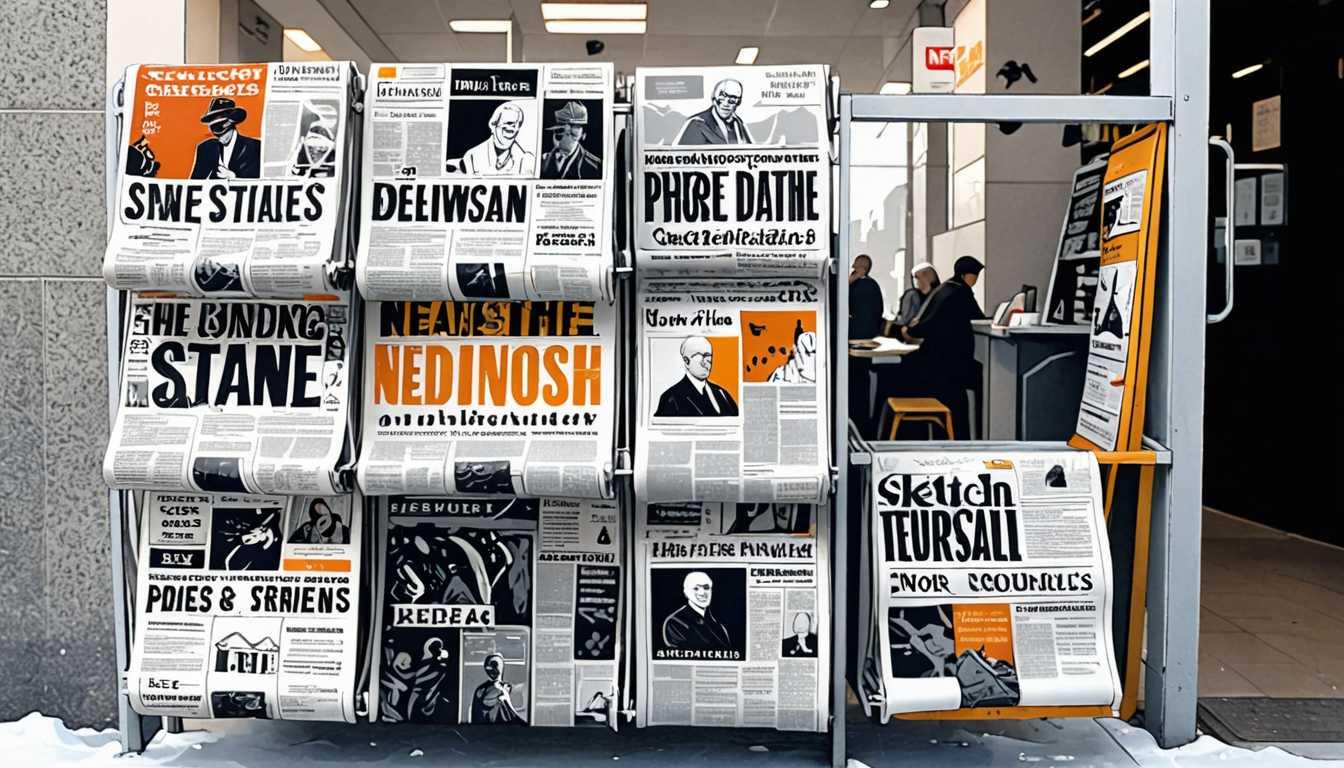Rethinking Journalism: Baron's Truth Quest
March 2024
Harvard University
Introduction
Dive into Marty Baron's enlightening talk at Harvard, where he challenges journalists to ditch their know-it-all hats and embrace true objectivity. Through his engaging conversation, Baron, a journalism titan behind 17 Pulitzer Prizes, debunks the myth of neutrality and advocates for a journalism rooted in open-mindedness and rigorous truth-seeking. With a witty nod to history and a critical eye on today's media landscape, this article is a must-read for aspiring truth-tellers. Source: Harvard University.
READ FULL ARTICLEWhy It Matters
Discover how this topic shapes your world and future
Unveiling the Veil of Ignorance
In today's world, where information is as vast as the ocean, journalists play a critical role in shaping our understanding of reality. The debate around objectivity in journalism, highlighted by Marty Baron's insights, underscores the importance of unbiased reporting in an era of misinformation. Understanding the difference between objectivity and neutrality, and the challenges of maintaining 'moral clarity,' is crucial not just for journalists but for anyone navigating the sea of information. This discussion is not just about how news is reported; it's about the very fabric of democracy and the role of the media in supporting or undermining it. For you, as a student, grasping these concepts is essential for developing critical thinking skills and becoming a well-informed global citizen. It's about learning to question, to understand the biases that shape the world around us, and to appreciate the complex role that media plays in democracy.
Speak like a Scholar
Objectivity
The principle of being unbiased and impartial, focusing on facts without letting personal feelings or opinions influence your judgment.
Neutrality
A state of not supporting or helping either side in a conflict or disagreement.
Bias
An inclination or prejudice for or against one person or group, especially in a way considered to be unfair.
Moral Clarity
The conviction of being absolutely certain about the moral rightness of one's position.
Echo Chamber
An environment where a person only encounters information or opinions that reflect and reinforce their own.
Pulitzer Prizes
Prestigious awards given for achievements in newspaper, magazine, online journalism, literature, and musical composition within the United States.
Independent Research Ideas
The Evolution of Objectivity in Journalism
Explore how the concept of objectivity has changed from the early 20th century to the present day, and how these changes have influenced public trust in media.
Bias in Media
Analyze different media outlets to understand how bias can shape news reporting and public perception.
The Role of Journalism in Democracy
Dive into how journalism supports or undermines democratic values, focusing on the balance between freedom of the press and responsible reporting.
Echo Chambers and Public Discourse
Study the impact of echo chambers on public discourse, particularly in relation to political polarization.
The Importance of Moral Clarity vs. Objectivity in Reporting on Social Issues
Investigate specific cases where journalists have had to balance moral clarity with objectivity, such as in reporting on human rights abuses.
Related Articles

Fact-Checking: Reddit's Game Changer
August 2023
Cornell University

When Newspapers Fade, Corruption Rises!
September 2024
LSE Business Review

Crowds vs. Misinformation: Taiwan's Triumph
November 2023
Cornell University

Why We Share Fake News
October 2023
Phys Org

Digitizing India's Cultural Legacy
October 2023
MIT Technology Review